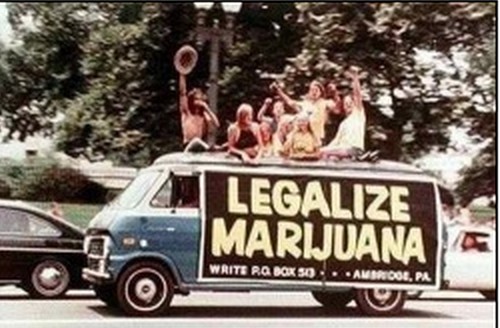U.S. States Tried Decriminalizing Pot Before. Here’s Why It Didn’t Work
 Time 7 December 2017
Time 7 December 2017
Family First Comment: This is a fascinating read – and shows why we must continue to fight the liberalisation of dope. History and experience is on our side. From back in the 70’s….
“Whereas pro-marijuana advocates supported decriminalization on the basis of an adult’s right to privacy and freedom, parent activists said that children had a more important right to grow up drug-free. And though many Americans supported decriminalization in the 1970s, once rates of adolescent use started to rise, and when paraphernalia manufacturers sold items to kids, the country’s attitude toward marijuana experienced a swift reversal.” www.SayNopeToDope.nz
In the past five years, eight states and Washington, D.C., have legalized recreational marijuana for adults. Today, 68 million people live in areas where marijuana is treated like alcohol or tobacco. The drug is sold in stores, millions of tax dollars are being raised from its sale, and an increasing number of businesspeople are profiting in this lucrative new industry. Long seen as either a hippie accessory or a dangerous gateway drug, legal marijuana is booming. Pot is so popular that, in 2015, its sales surpassed Girl Scout cookies, Oreos, and Dasani bottled water. By 2026, analysts predict it will match, and eventually outpace, America’s $50 billion wedding industry.
How did this happen? How did marijuana transform from a primary target of Just Say No into something that, according to a recent Gallup poll, 60% of Americans want legalized? The answer lies in five decades’ worth of grassroots activism, in which legions of the drug’s supporters pushed to move marijuana from decriminalization to criminalization to legalization.
But, while legalization proponents may declare victory in the war over marijuana today, history shows that the debate is far from settled.
In fact, we’ve been here before. Between 1973 and 1978, a dozen states decriminalized the possession of up to an ounce of marijuana. Pro-pot activists, many of them young veterans of the anti-war and civil-rights movements, argued that marijuana wasn’t as harmful as the government said it was, and that laws against it were unjust. In the era of Watergate and the Pentagon Papers, they built on America’s growing distrust of the government to pass less restrictive marijuana laws at the state level. It worked: by 1978, a third of the country lived in states where marijuana possession warranted little more than a fine.
But a multi-million dollar paraphernalia industry followed in decriminalization’s wake. By 1977, sales of pipes, bongs, rolling papers and drug-oriented magazines and toys were generating $250 million a year (equivalent to $1 billion today). There was little to no regulation or oversight on this booming new industry, however. Products that seemed directly targeted to kids — including Frisbees with pipes on them and bongs shaped like spaceships — were sold openly, often in corner shops and music stores.
READ MORE: http://time.com/5054194/legal-pot-experiment-history/






